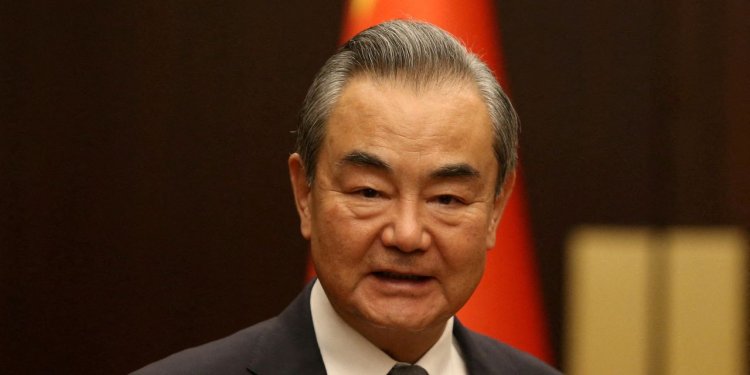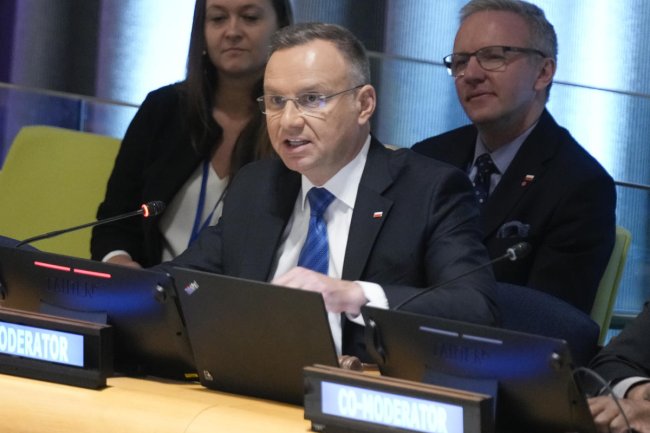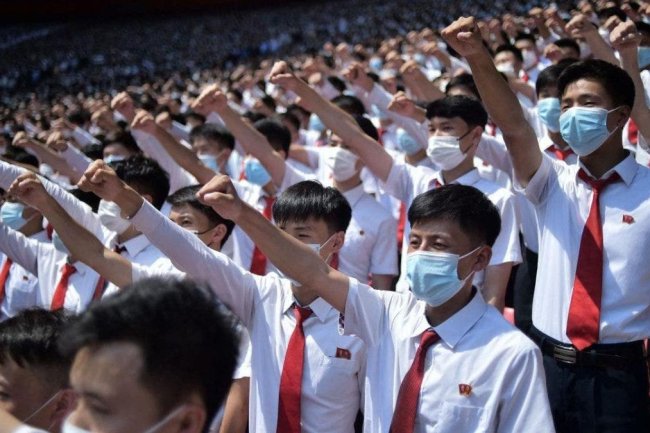China Reassures Russia on Ukraine After Meeting With Others on How to End the War
Chinese foreign minister vows Beijing will remain ‘independent and impartial’ in seeking solutions to the conflict Chinese Foreign Minister Wang Yi spoke with his Russian counterpart after Beijing sent an envoy to a diplomatic conclave in Saudi Arabia on the Ukraine war. Photo: POOL/via REUTERS By Chun Han Wong Aug. 8, 2023 5:15 am ET SINGAPORE—China’s top diplomat assured Russia that Beijing hasn’t wavered in its stance on the Ukraine war, right after a Chinese envoy joined a multilateral forum—which excluded Moscow—to discuss ways to end the conflict. In a Monday call, Chinese Foreign Minister Wang Yi and his Russian counterpart, Sergei Lavrov, affirmed the strong partnership between their governments and promised to keep working together to resist Western efforts to


Chinese Foreign Minister Wang Yi spoke with his Russian counterpart after Beijing sent an envoy to a diplomatic conclave in Saudi Arabia on the Ukraine war.
Photo: POOL/via REUTERS
SINGAPORE—China’s top diplomat assured Russia that Beijing hasn’t wavered in its stance on the Ukraine war, right after a Chinese envoy joined a multilateral forum—which excluded Moscow—to discuss ways to end the conflict.
In a Monday call, Chinese Foreign Minister Wang Yi and his Russian counterpart, Sergei Lavrov, affirmed the strong partnership between their governments and promised to keep working together to resist Western efforts to contain their countries’ development, according to readouts from both foreign ministries.
The two ministers also discussed the Ukraine war, but neither readouts directly mentioned a weekend diplomatic gathering in Saudi Arabia, where China played what the U.S. later said was a productive role in discussing possible paths to peace in Ukraine. Even so, Wang’s comments included an apparent reference to the Jeddah meeting that sought to reassure Moscow about China’s position on the war.
China, at any international multilateral forum, will “uphold an independent and impartial stance” while promoting peace talks and seeking a political solution to the “Ukraine crisis,” the Chinese diplomat said, according the readout from China’s Foreign Ministry, which kept to Beijing’s longstanding aversion to describing the conflict as a war.
Russia’s Foreign Ministry, meanwhile, issued a statement characterizing the call as confirmation that “Moscow and Beijing have identical or largely concurring approaches towards international affairs,” without elaborating on what was discussed regarding Ukraine. Lavrov and Wang “reaffirmed their commitment to maintain close foreign policy coordination,” the statement said.
Their call came the day after the diplomatic conclave in the Saudi Arabian city of Jeddah, where senior officials from 42 countries—including the U.S. and China—met to discuss ways to reach a potential peace settlement to the Ukraine war.
Ukraine and its Western backers cast the closed-door talks as an effort to rally global support, particularly from major developing countries that have largely stayed neutral, behind conditions for ending the war that would favor Ukraine.
As Russia’s most important diplomatic partner, China is seen as crucial to building traction for the peace talks and potentially shaping discussions on Moscow’s red lines and concerns in any peace plan.

Most countries that attended the Jeddah conclave appeared willing to meet again in the coming weeks.
Photo: -/Agence France-Presse/Getty Images
The U.S. on Monday praised China’s participation in the Jeddah meeting. “We have long said that it would be productive for China to play a role in ending the war in Ukraine if it was willing to play a role that respected Ukraine’s territorial integrity and Ukraine’s sovereignty,” State Department spokesman Matthew Miller told reporters.
China was an active participant in the meetings, the head of Ukraine’s presidential office, Andriy Yermak, said in a televised interview that aired after the forum.
“I hope that our bilateral relations with China will deepen,” Yermak said. “This is very important for China to know the truth, first of all, and for the Chinese position to sway to our side, to the side of striving to end this war.”
Most countries that attended the Jeddah conclave—including China—appeared willing to meet again in the coming weeks, with Russia excluded, The Wall Street Journal reported, citing people involved in or briefed on the talks.
China was represented in Jeddah by Li Hui, Beijing’s peace envoy for the Ukraine war. Li’s presence marked a shift for China, which didn’t join similar talks held in Copenhagen in June, which was attended by a number of countries including Brazil, India, Turkey and South Africa.
At the Jeddah meeting, the Chinese delegation presented Beijing’s 12-point position paper—first published in February—that called for a cease-fire in Ukraine and peace talks to end the war, the Journal reported. European diplomats pushed back to warn that an unconditional cease-fire could simply create a frozen conflict and allow Russia to consolidate its control of Ukrainian territory.
China’s account of the phone call on Monday quoted Lavrov as saying that Russia appreciates China’s constructive role in trying to resolve the Ukraine crisis, and that Moscow “highly agrees” with Beijing’s existing position paper on the matter.
While Monday’s call underscored Beijing’s commitment to its partnership with Moscow, Chinese officials have at times signaled concern over the global impact from prolonged hostilities in Ukraine, and warned against the use of nuclear weapons—a thinly veiled rebuke against Russia’s threats to use such armaments in Ukraine.
Beijing reappointed top diplomat Wang Yi to replace Qin Gang as foreign minister without addressing Qin’s mysterious absence. Photo: Florence Lo/Pool Reuters/Associated Press
Beijing’s continued support for Moscow since Russia’s invasion of Ukraine has caused disquiet across Europe, where a growing number of countries have hardened their stance toward China.
Wariness of Beijing is prompting some European leaders to skip a coming summit in Beijing this fall, when Chinese leader Xi Jinping is expected to host Russian President Vladimir Putin and other foreign leaders to discuss China’s Belt and Road initiative to build global trade infrastructure, the Journal reported.
Write to Chun Han Wong at [email protected]
What's Your Reaction?













